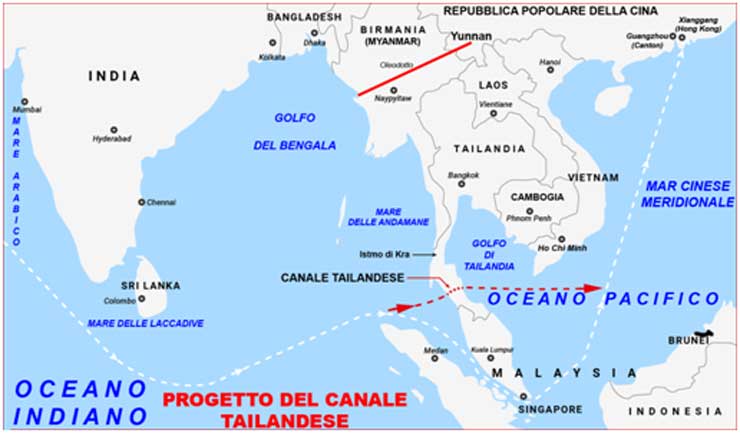By Tirthankar Mitra
A key sea lane connecting Indian and Pacific Oceans, it is no exaggeration to say that Malacca is a vital security component in the trade and security policies of South East Asian nations. In the backdrop of the ongoing power rivalry playing out in the Indo-Pacific region it is an important strategic and maritime economic choke point.
The punitive economic measures by USA against China vice versa are still in place. The tit for tat policy has led to a reduction of the trade volume between the two of the world’s largest economies.
It’s fallout is discernible in the marked decline of the sea borne trade through the Malacca Strait. There being no drop in acrimony between Beijing and Washington, the fallout is perceptible the world over.
After all, regional economies are intertwined in the Indo-Pacific region. The key lies in the supply chains which is threatened if not to be broken but certainly disrupted in the power struggle between the two economies.
The USA is loath to let go of its premier position in this region which is no longer unipolar. As for China, no longer “a sleeping giant” is in no mood for any sort of a nap from which it long since has arisen. One wonders whether USA regrets the mission of its foreign secretary Henry Kissinger beyond the Bamboo Curtain to beckon China to take a seat in the high table of world trade and diplomacy. That was the beginning of the economic gains from a deal sealed by Kissinger playing the honest broker.
But at the moment, the Malacca Strait is dealing with multiple troubles. Congestion is creating navigational hazard given 90,000 ships passing through it every year.
Collisions occur delaying the flow of goods. It needs to be mentioned about 60 per cent of global maritime trade passes through this body of water with an identical percentage of world’s GDP, a pointer to the cause behind the not curtailing the size of the fleet of merchant navy sailing through this sea lane.
Oil spills are one of the environmental hazards that can result from the collisions, a part and parcel of navigational accidents. It poses a threat to the 3,000 marine species a reflection of the region’s environmental importance.
Man steps in when nature’s woes stop. The vast area is marked by the reemergence of piracy whose percentage has gone up vis-a-vis last year. No longer flying the skull and cross bones flag, but no less blood thirsty than their centuries gone by predecessors, the 21st century pirates are no longer pests. They are a menace.
If these “high sea men” may not make their victims “walk the plank”. But the attacks of these lawless men scouring the choppy seas are no less damaging to the modern maritime trade.
The days when the sea rovers swooped down on sailing ships are long gone. But their modern day successors are making their presence felt in a far more damaging and widespread manner than their predecessors ever dreamt of.
Of late, climate change has worsened owing to global environmental scenario and the Malacca Strait is no exception. Global warming raises sea level. The threat of natural disasters also heightens from global warming. In so many words, the frequency and severity of the natural disaster rises too.
It also changes pattern of fish migration. The life of the coastal community in and around the Malacca Strait is adversely affected following reduction of the fish populations as it is a rich source of animal protein supply to the local populace together with a key item of its trading activity.
Supply of goods through Malaccan Strait is delayed by extreme weather. It’s fallout is a delay in the regional supply chain. As things stand now, the South China Sea is a region where China several ASEAN member states have maritime disputes. Crises may break out here.
Then it would be flash point crippling the movement of vessels through the entire Malacca Strait. The countries whose interests intersperse these troubled waters should think twice before embarking on a punitive or military move. The world trade is on a delicate balance. It would be disaster for the entire region if any stand-off occurs. (IPA Service)


 Latest Hamas-Israel War Is Set To Torpedo Recent West Asian Détente Moves
Latest Hamas-Israel War Is Set To Torpedo Recent West Asian Détente Moves 